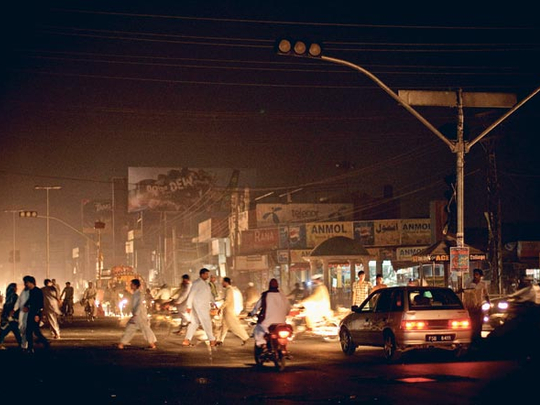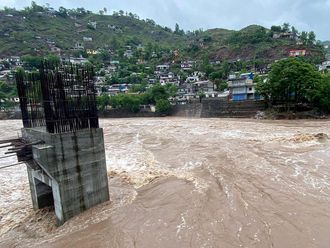
Faisalabad: Mohammad Rafiq has worked in Pakistan's weaving factories for 35 years, minding the looms that turn thread into cotton fabric.
But lengthy power cuts often leave him and his fellow workers idle and losing wages.
Outages of up to 18 hours a day are threatening the government's stability at a time when the US is pressing it to step up its fight against the Taliban and Al Qaida.
Mindful that a bad economy could mean more recruits to the militant cause, Washington has pledged $1 billion to improve the power supply, including upgrading thermal and hydropower plants as well as modernising distribution.
Rafiq said he was afraid he would lose his job and the owner would close the factory.
"I'll have no future," said Rafiq, 52, with a gesture of helplessness.
The shortfall is estimated at 4,000 megawatts, one-fourth of maximum capacity, and practically no one in the nation of 180 million can escape the blackouts.
They disrupt the work day. They shut down fans and air conditioning.
Urban dwellers often return to a dark home, unable to watch a cricket match on TV or have a cold drink. The blackouts are even worse in villages.
The summer, when temperatures can reach 150 degrees Celsius, has only just started and already rallies against blackouts were attracting hundreds of protesters.
Some had turned violent, smashing cars and property. Markets that stayed open until midnight or later have to close at 8pm under a government conservation program that has also nixed popular late-night weddings.
Text messages offer "Brand new and slightly used diesel and gas generators" but few can afford them.
However Pakistan Electric Power Company managing director Tahir Basharat Cheema said things would soon get better as new power plants came on line.
But he made no excuses for the state-run company's failures.
"I'll be very, very frank: electricity should be available and it should be available all the time," he said.
"I apologise to the people like anything because it has been people like us who have missed the bus, who haven't really done their work at the right time."
The shortages began 10 years ago with a boom in consumer spending on household appliances that drove up electricity use 15 percent in 2007 alone.
It exposed deeply ingrained problems with the power supply — outdated transmission systems, widespread electricity theft, corruption and bureaucratic infighting that stalled power generation projects, and even outdated records that leave bills unpaid.
Outages are particularly painful in industrial cities like Faisalabad, 260km south of Islamabad in Punjab province, the centre of Pakistan's textile industry, which accounts for 40 per cent of factory jobs.
Garments and textiles make up more than half the country's exports.
Eighteen months ago, the Pakistan Institute of Development Economics surveyed 400 Punjab factories and said power cuts had slashed industrial output by 25 per cent.











